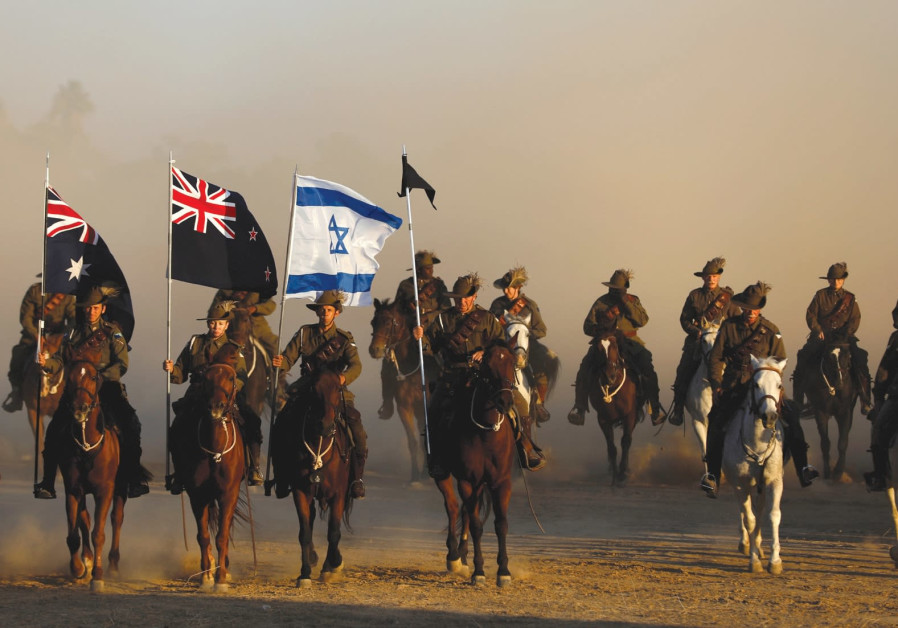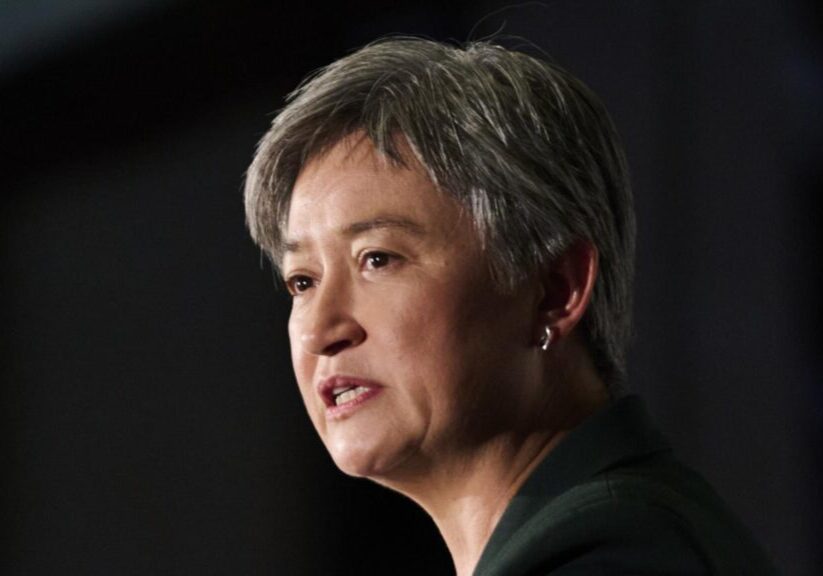IN THE MEDIA
ANZAC charge at Beersheba just as relevant today
Nov 2, 2017 | Sharyn Mittelman

Sharyn Mittelman
The Daily Telegraph – November 2, 2017
This week marks the 100th anniversary of the charge of the Australian Light Horse at Beersheba – one of Australia’s greatest military victories. On October 31, 1917, in a somewhat desperate gamble for the British-led army, 800 Australians of the Light Horse Brigade charged through the desert towards Beersheba, under the guns of the Ottoman force, holding their bayonets in their hands like swords.
Thirty-one Australians and many more Turks lost their lives, as the charge breached the Turkish defensive trench line.
By taking Beersheba and its vital water supply, the Allied forces were able to go on to take Jerusalem and later Syria.
The Anzac victory in Beersheba is symbolic of how Australia’s history has been entwined with Israeli history even before the Israeli state was established in 1948.
According to official war historian H.S. Gullett, Australians in particular, out of all the allied forces, were welcomed with special affection by Jewish residents of the areas which later became British Mandate Palestine and then Israel.
The battle also changed the course of the Middle East as the eventual Allied victory enabled the French and British to carve up the Middle East, paving the way for the modern state of Israel.
While the victory did not directly lead to Israel’s creation, it was a necessary precondition. A few days afterwards Britain signed the Balfour Declaration of 1917, which declared the British government’s support for “the establishment in Palestine of a national home for the Jewish people” provided that “nothing shall be done which may prejudice the civil and religious rights of existing non-Jewish communities in Palestine”.
After the war, Britain was given a League of Nations mandate over the area which specifically called for London to establish a “Jewish national home” there.
After WWII, Britain handed the future of Palestine to the United Nations which recommended that it be divided into a Jewish and Arab state. Australia’s H.V. “Doc” Evatt was president of the UN General Assembly from 1948 to 1949, and was prominent in the negotiations that led to the creation of Israel, which he described as a “great victory of the United Nations”.
Both Prime Minister Malcolm Turnbull and Opposition Leader Bill Shorten were in Israel this week to lead the Australian delegation at the centenary commemoration services in what is today the ancient/modern Israeli city of Be’er Sheva.
Israel’s Prime Minister Benjamin Netanyahu and President Reuven Rivlin were also present.
The commemorations included a re-enactment of the charge, a commemoration service at the Commonwealth War Cemetery, the official opening of the new Light Horse Museum and a commemoration at the “Park of the Australian Soldier”.
The park honours Australia’s military involvement in the Middle East and includes a bronze memorial sculpture of a mounted light-horseman, and a playground that accommodates children of all disabilities.
Today, Australia and Israel continue to strengthen their friendship reaping mutual benefits. Australia recognises Israel as a leader in innovation – the “start-up nation” – and has established a “landing pad” in Tel Aviv that supports Australian entrepreneurs seeking to collaborate and learn from their Israeli counterparts. Both nations are also working on a Double Taxation Agreement, to remove tax impediments to business.
Moreover, this February Mr Netanyahu became the first sitting Israeli prime minister to visit Australia, which led to agreements on innovation, research, agriculture, as well as aviation “codeshare” agreements that will make booking direct airline tickets between Israel and Australia easier.
Prime Minister Turnbull’s visit to Israel – the first since John Howard visited in 2000 – built on these developments.
He met with Mr Netanyahu for talks, and the two countries agreed to strengthen their defence and intelligence relationship through annual defence talks, and cyber security initiatives, as well as signing a memorandum of understanding on defence industry co-operation.
It seems remarkable that today little Israel is a world leader in defence technology, helping nations fight terrorism, while Beersheba – once a small town in the desert – is considered a world leader in cyber security.
It makes one wonder what the Anzacs of 1917 would think if they knew that the friendships they made following Beersheba would endure for 100 years and continue to grow in ways they could not have imagined.
Sharyn Mittelman is a senior policy analyst at the Australia/Israel & Jewish Affairs Council
Tags: Australasia











